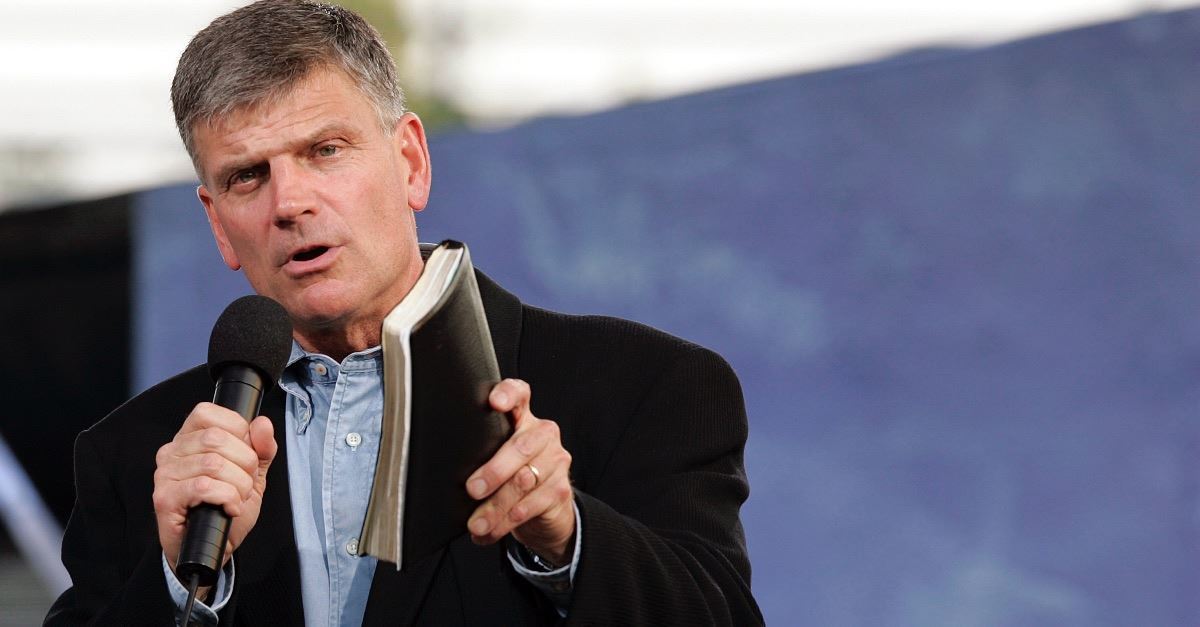In a significant move to mobilize Christian voters, the Billy Graham Evangelistic Association (BGEA), led by Franklin Graham, has launched a new voting guide aimed at helping Christians navigate the complex political landscape. Released on September 25, 2024, the guide addresses growing concerns that many Christians are straying from biblical truths and succumbing to social pressures and leftist ideologies.
Franklin Graham, the son of the late evangelist Billy Graham, has been an influential voice within the evangelical community. In a press conference on September 26, he emphasized the importance of Christians aligning their votes with their faith. “We are at a critical juncture in our nation,” Graham stated. “Many Christians have begun to compromise their values under the pressure of societal changes. This guide is a reminder of our duty to uphold biblical truths in every area of our lives, including how we vote.”
The voting guide, available for free on the BGEA website, covers key issues such as religious freedom, the sanctity of life, marriage, and education. It presents a clear outline of where candidates stand on these issues, providing voters with the tools they need to make informed decisions. The guide also features testimonials from prominent evangelical leaders who warn against the influence of progressive ideologies infiltrating the church and society at large.
Critics of the current political climate argue that many in the Christian community have drifted from core biblical teachings. “There’s a growing trend of Christians who are more influenced by popular culture than by Scripture,” said Dr. Samuel Harris, a theologian and author. “This voting guide serves as a critical reminder to believers that our values should not be dictated by shifting societal norms.”
The timing of the guide’s release is particularly strategic, as early voting begins in October. With a heightened focus on the upcoming elections, Graham’s initiative seeks to re-engage a segment of the electorate that has felt disillusioned in recent years. According to a Pew Research Center study, while 78% of white evangelical Protestants are expected to vote in this election, there is growing concern that they are not fully aware of the implications of their choices.
The BGEA is leveraging various platforms, including social media and church networks, to distribute the guide. Graham has actively encouraged followers to download and share the resource, framing it as a tool for spiritual guidance in the voting process. “We must not allow ourselves to be swayed by the pressures of the world,” he urged. “Our allegiance must remain to God and His principles.”
However, this initiative has raised eyebrows among some who view the politicization of faith as a potential source of division within the church. “While civic engagement is important, we must be cautious about endorsing any one political party or ideology,” cautioned Dr. Rachel Simmons, a Christian sociologist. “The church should remain a place for unity and love, not a platform for partisan politics.”
The guide outlines specific legislative battles that resonate with Christian values, such as opposition to abortion, support for traditional marriage, and promotion of religious liberties. It also identifies candidates at both the local and national levels who are aligned with these positions, providing voters with a comprehensive resource as they approach the polls.
In a recent statement, Dr. George Barna, a leading Christian pollster, emphasized the potential impact of such resources on voter turnout. “The evangelical vote can be a decisive factor in elections,” he said. “When they are educated about the candidates’ positions and understand the implications for their beliefs, they are more likely to engage actively in the political process.”
The guide also highlights the dangers of allowing social ideologies to infiltrate Christian beliefs. “There is a moral imperative for Christians to resist the normalization of values that contradict biblical teachings,” Graham asserted. “This guide encourages believers to stand firm against the tide of cultural pressure that seeks to redefine our faith.”
As the election approaches, Franklin Graham is also organizing prayer rallies across the nation, aiming to unite Christians in seeking divine guidance for their voting decisions. The first of these rallies is set for October 5 in Washington, D.C., where thousands are expected to gather to pray for wisdom and discernment. “We must seek God’s guidance as we face the challenges of our times,” Graham stated.
Despite the support for the guide, concerns remain about the broader implications of politicizing Christianity. Many leaders warn that emphasizing partisan alignment can alienate individuals who may feel marginalized within the church. “We must prioritize the message of Christ over political agendas,” said Pastor Anna Mitchell of Grace Community Church. “While I agree with the need for Christians to engage politically, we should never lose sight of our primary mission: to share the Gospel.”
As Franklin Graham and the BGEA mobilize voters, they do so against a backdrop of a divided political landscape. Historical data shows that evangelical Christians have been instrumental in shaping electoral outcomes, especially in key swing states. The push for a values-based voting approach is intended to counteract what Graham describes as a troubling trend of moral compromise among believers.
This voting guide not only serves as a practical resource for Christians but also as a clarion call to return to foundational biblical principles in the face of cultural challenges. As the election season heats up, the BGEA’s initiative highlights the ongoing struggle for many Christians to maintain their faith in an increasingly secular society.
With the election just weeks away, the effectiveness of this outreach will be closely monitored. Observers are keen to see whether Graham’s efforts will lead to a resurgence of active, values-driven participation among evangelical voters.
Sources: Billy Graham Evangelistic Association; Pew Research Center; Liberty University; Interviews with evangelical leaders and political experts.
As the dialogue surrounding faith and politics continues to evolve, Franklin Graham’s initiative may serve as both a unifying force for some and a source of contention for others within the Christian community.
